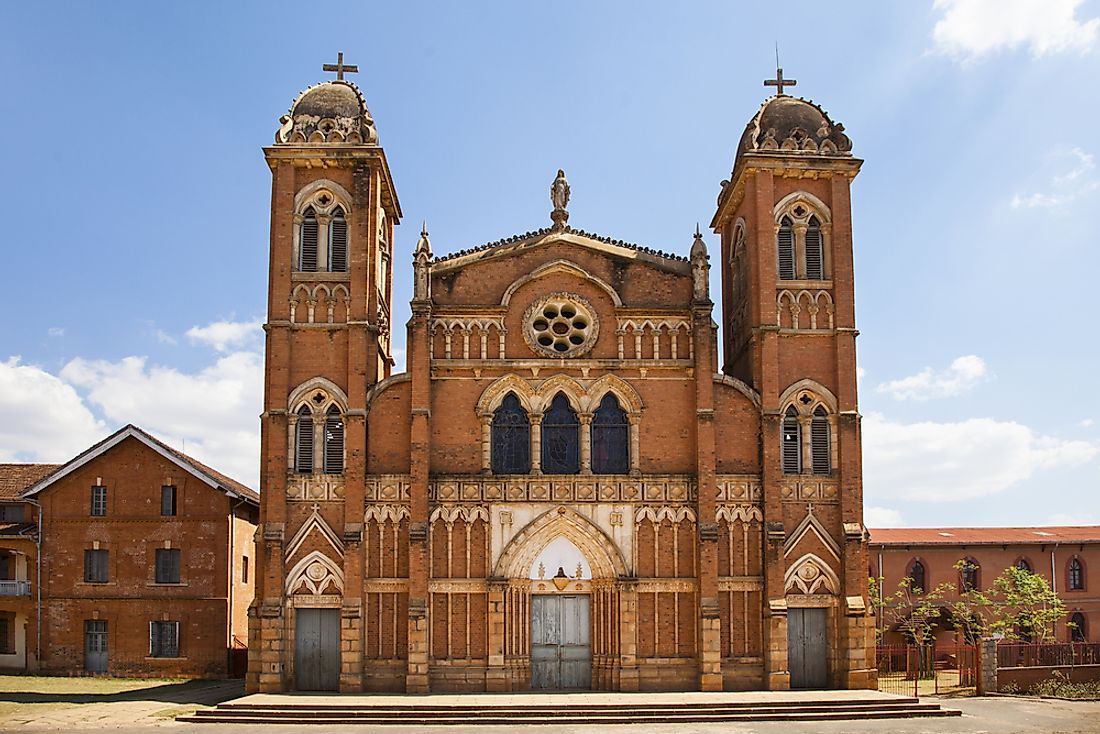The Origin And Growth Of Christianity In Africa

Christianity enjoys widespread popularity in Africa particularly in the nations situated in the Southeast, Southern, and Central regions of the continent. The religion is also present in some nations in the Northeast and also the Western region. The World Book Encyclopedia has stipulated that Christians constitute 80% of Africa's population in 2002. Since then, Africa has become a region predominantly inhabited by Christians and Muslims.
Introduction Of Christianity To Africa
Mark the Evangelist made history in the year 43 when he became the first bishop to serve in the Orthodox Church of Alexandria. The Alexandria-based church initially used Greek, and it was not until the late 2nd century that both the liturgy and the scriptures were translated into three native languages. Christianity found its way to Sudan in the 1st century as well, and the region's Nubian churches had links to those in Egypt. The religion also grew in northwestern Africa where the churches maintained links with the Church of Rome. The Church in Alexandria grew quickly in the 3rd century, and Alexandria's Bishop earned the title of Pope, and he was recognized as the senior Bishop in Egypt. However, Emperor Decius ordered the persecution of the adherents of Christianity in mid-3rd century forcing Christians to seek refuge in the desert. It is some of these Christians who stayed in the desert for prayers after the end of the persecution and founded Christian monasticism. King Ezana of the Ethiopian/Eritrean Kingdom of Aksum gave Christianity official status and facilitated the establishment of the Ethiopian Orthodox Tewahedo Church. However, Christianity in most of the areas of North Africa was wiped out with the advent of Islam.
The European Contribution To The Spread Of Christianity In Sub-Saharan Africa
The Portuguese attempted to introduce a Catholic-influenced form of Christianity between the 16th and 18th centuries in the Kongo Kingdom, but it did not last for long. The Evangelical Revival, in the late 18th century, started sending missionaries to Africa. The positive intentions of Christianity were however overshadowed by the ills of the slave trade and commercial exploitation. These evils were fought by champions like Henry Venn and Thomas Fowell. Venn sought to develop an African Church by urging missionaries to move on after the seeds had been sown and leaving the native leaders to develop their church. African Christianity thus blossomed from the seeds planted by western Missionaries, and it developed its cultural identity.
The African Church
Reformers in the missionary churches, as well as independent church leaders, agitated for changes in the institutionalized church. This agitation resulted in both reforms and the sprouting of "African Initiated Churches." The oldest of these churches is the Tewahedo which enjoys a membership of around 45 to 50 million people.
Current Status Of Christianity In Africa
There has been a notable growth in the population of Christians residing in Africa while on the other hand observance of traditional African religions has been on a decline. In 1900, nine million Christians lived in Africa compared to the 380 million in 2000. The recent growth of the religion in Africa is mainly attributed to African Evangelism. Nigeria has particularly witnessed rapid growth in Christianity with numerous African-Christian denominations established across the nation. Many Messianic and syncretistic sections have also formed across the continent including the Nigerian Aladura churches and the Nazareth Baptist Church situated in South Africa.











